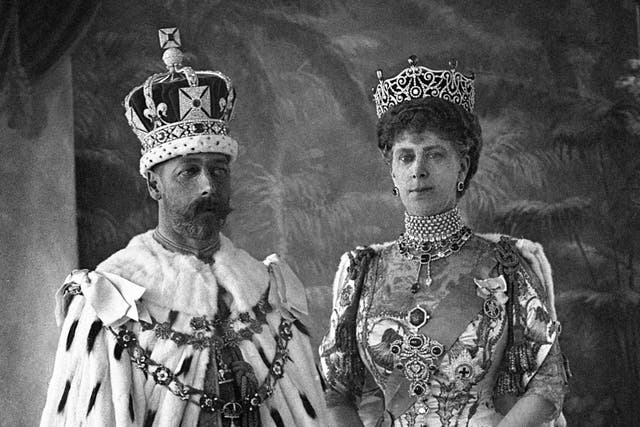Tiny treasures from Queen Mary’s Dolls’ House go on show at Windsor Castle
The replica of an Edwardian residence has electricity, working lifts, running water and luxurious royal suites.

Queen Mary’s Dolls’ House – the largest and most famous in the world – is to be celebrated at Windsor Castle this year to mark the 100th anniversary of its creation.
The perfect 1:12 scale replica of an Edwardian residence, complete with electricity, working lifts, running water, luxurious royal suites and functional below-stairs servants’ quarters, was built for King George V’s consort as a gift from the nation after the First World War.
Visitors to the Berkshire castle will be able to see a collection of the house’s intricate items up close in a centenary display in the grand Waterloo Chamber from January 18.
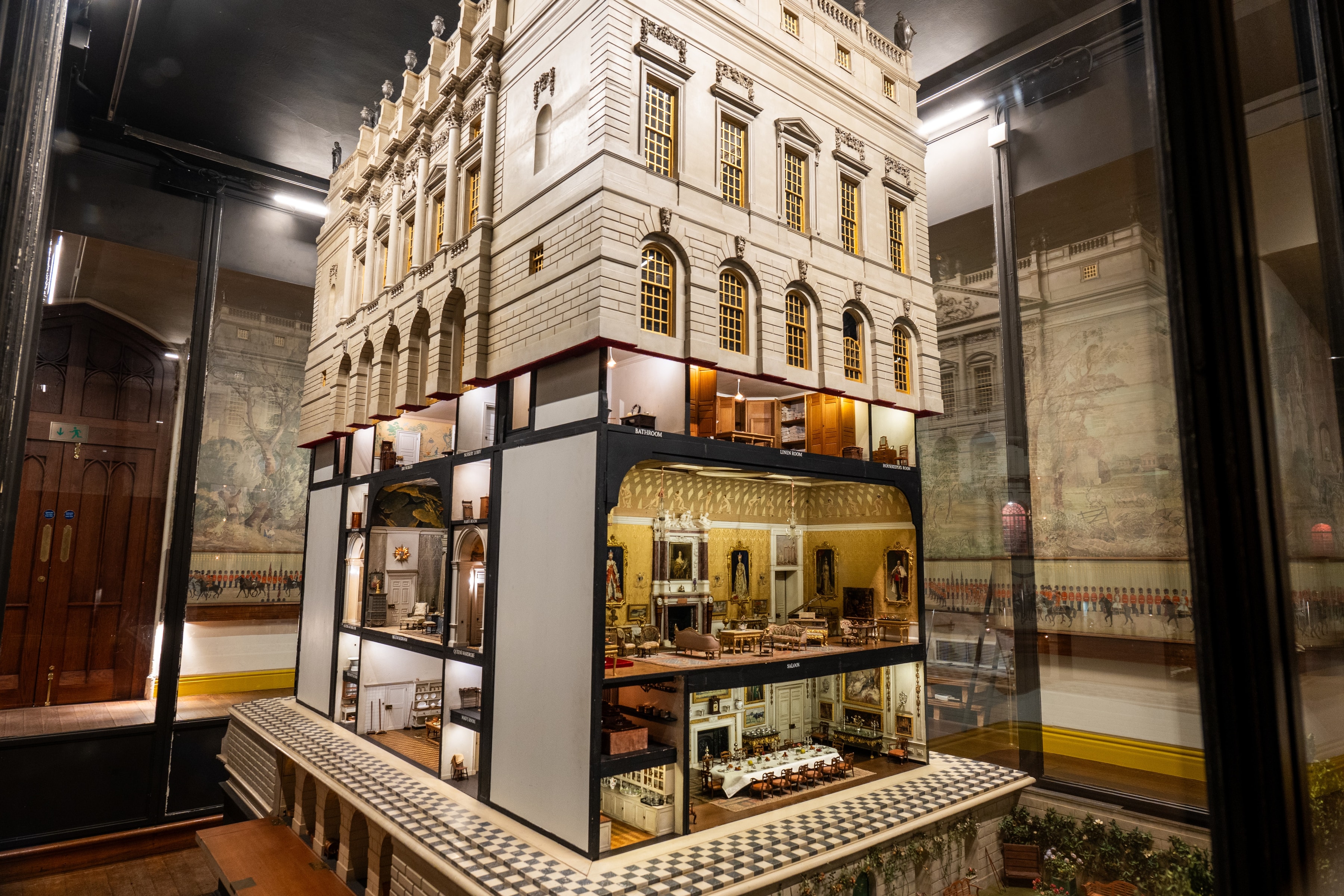
There is also a little Hoover vacuum cleaner – a relatively new invention in the 1920s – a Singer sewing machine complete with thread and minuscule scissors that can actually cut, and a copper kettle made from a coin with the King’s head still visible on its base.
More than 1,500 of the leading artists, craftspeople and manufacturers of the early 20th century including Faberge and Cartier worked on a three-year project to create the beautifully furnished rooms.
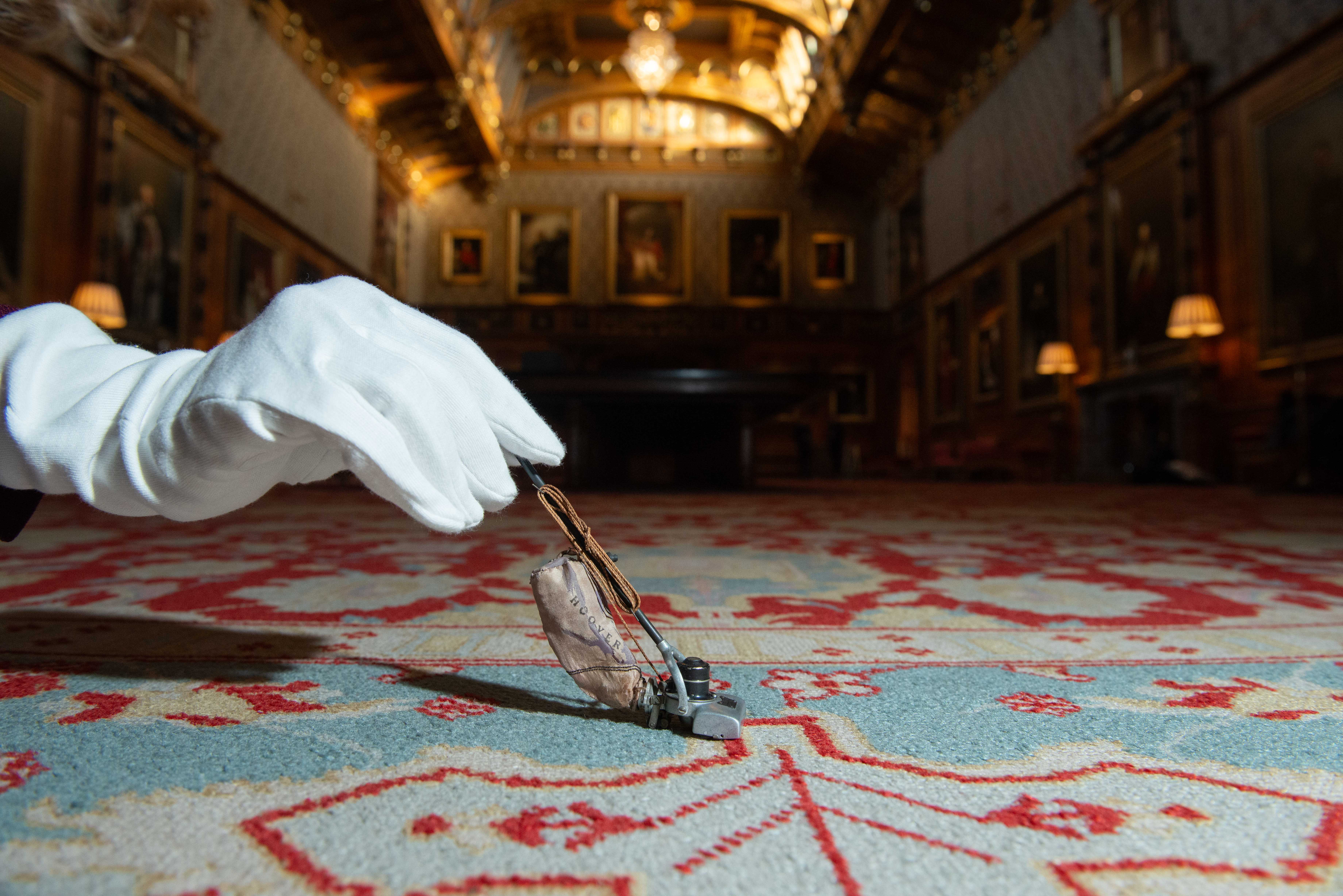
“We are thrilled that we can bring the tiny treasures of the dolls’ house to a wider audience in this anniversary year.”
It was completed in 1924, with lavishly decorated bedroom suites for the King and Queen, a day nursery, a grand saloon with a pair of red velvet and silver thrones, a dining room and a sweeping staircase in an impressive marble-style entrance hall.
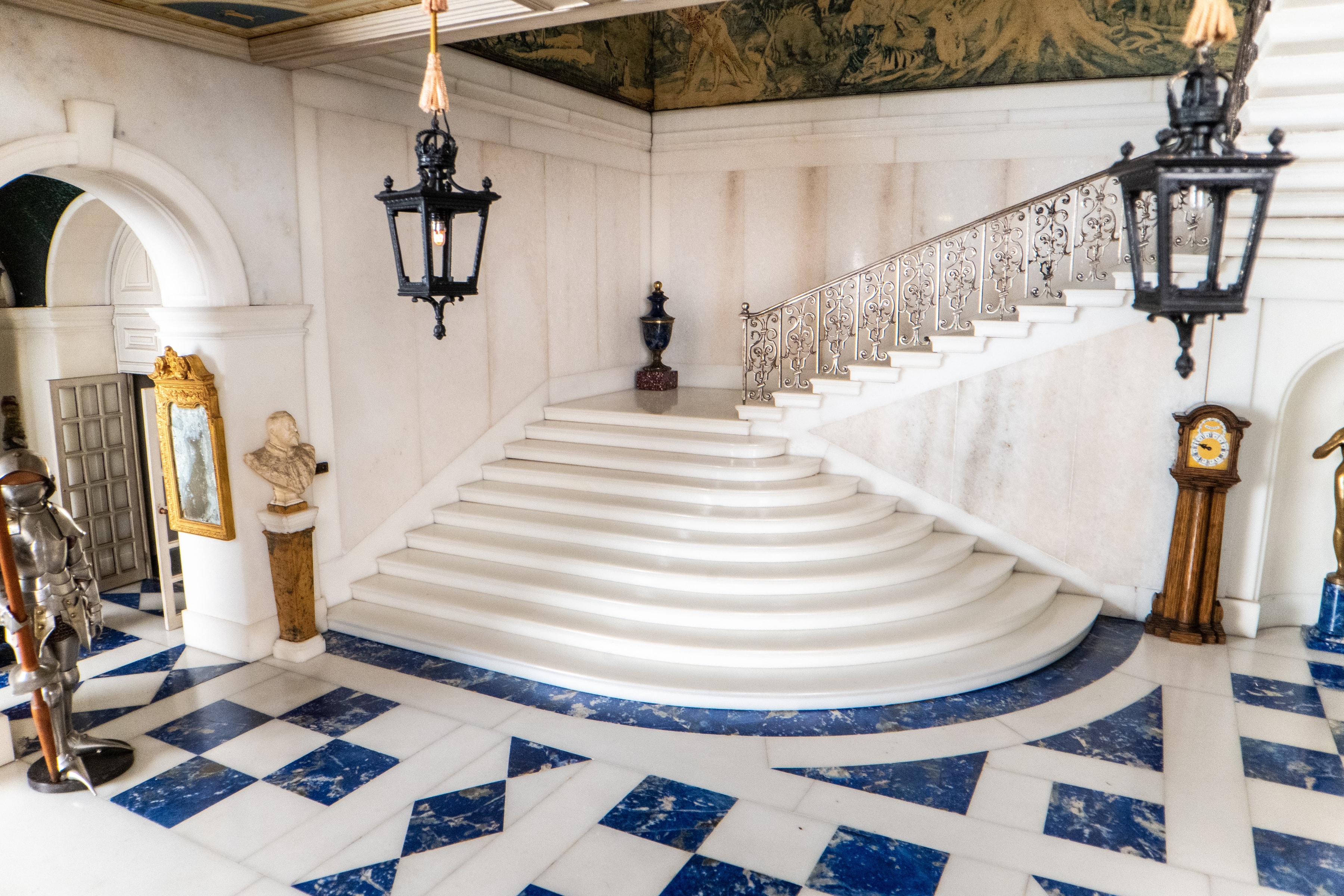
Murals by decorative landscape painter Philip Connard and artists Dorothy Cohen and Winifred Hardman have been restored in the room where the house was displayed from 1925.
For the first time, the house’s interior has been filmed from a dolls’ eye view perspective with footage on the Royal Collection’s website, giving viewers the chance to explore settings including the Queen’s bedroom, library, kitchen and day nursery in closer detail.
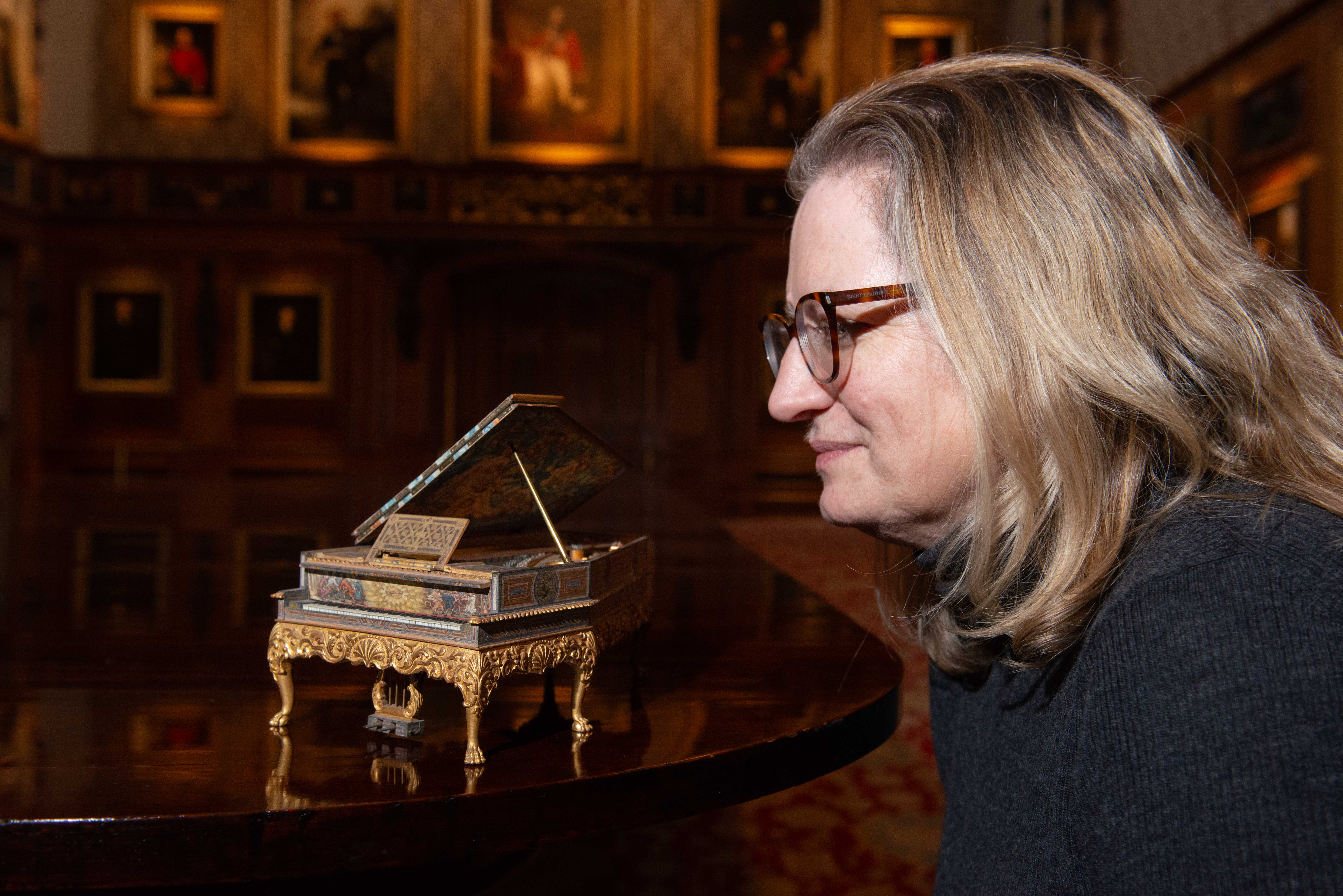
Some such as Virginia Woolf and George Bernard Shaw refused the request.
Camilla, a voracious reader and patron of a number of literary charities, has written a foreword to the book, The Miniature Library Of Queen Mary’s Dolls’ House by Elizabeth Clark Ashby, with excerpts from selected works – some for the first time.
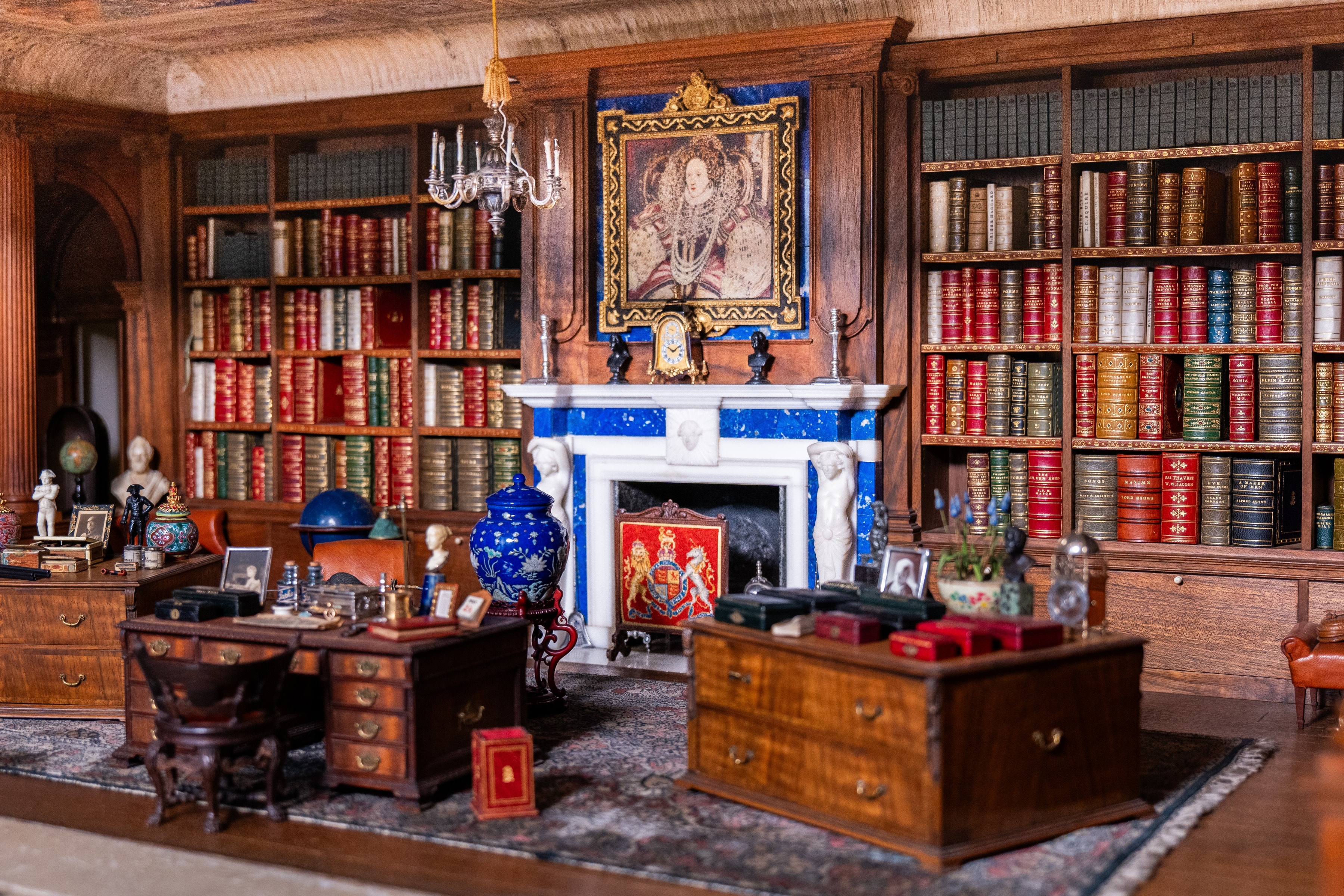
Queen Mary – King Charles III’s great-grandmother – was known to be a fan of all things small and decorative and the original idea came from her childhood friend, George V’s cousin Princess Marie Louise.
Its designer was leading British architect Sir Edwin Lutyens, who described it as “a miniature mansion such as the King & Queen might live in… in every detail complete”.
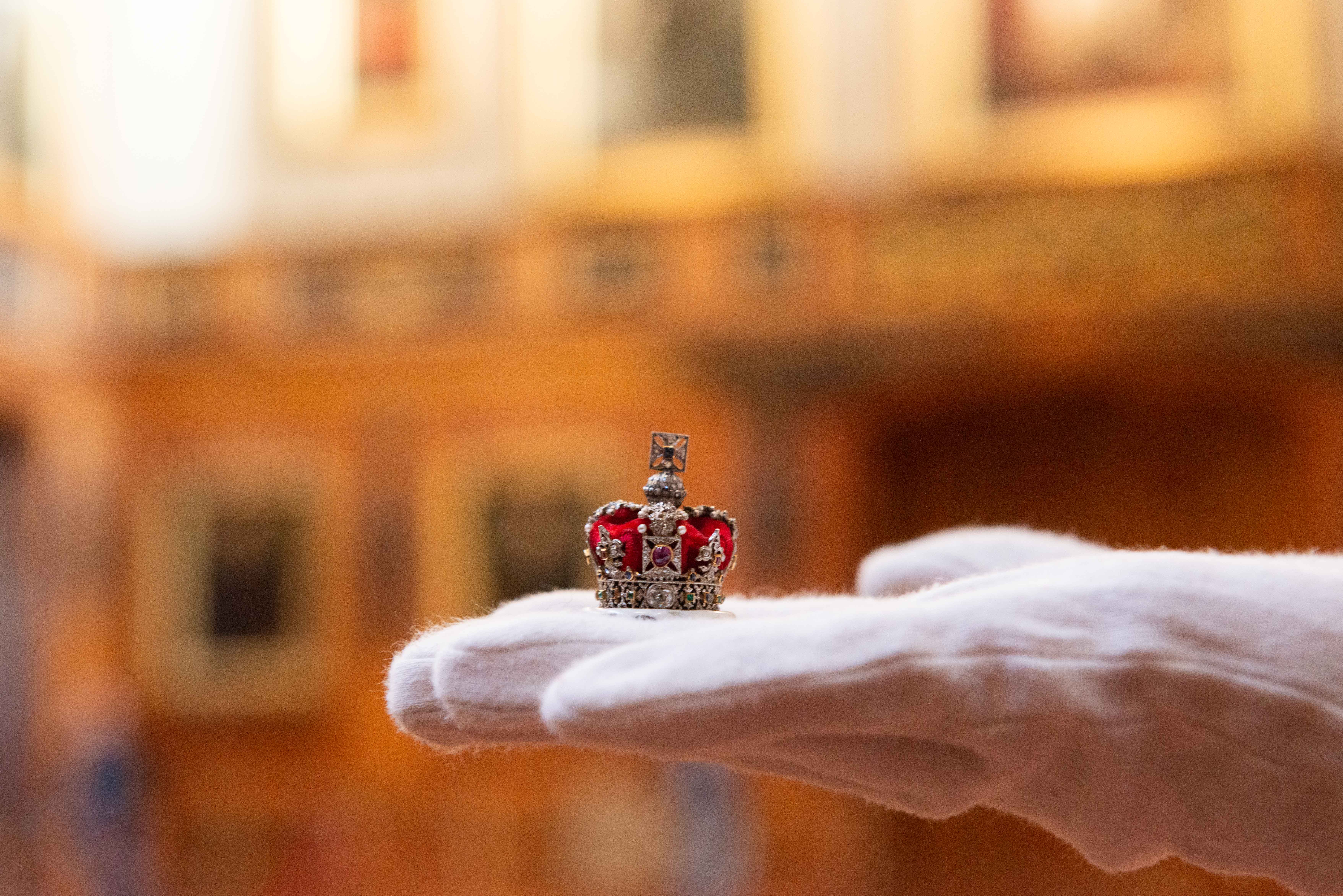
The champagne bottles were filled using tiny glass pipettes but the bubbles had to be removed to make this possible.
The special display of items from the dolls’ house is included with a ticket to Windsor Castle from January 18 and throughout 2024.
